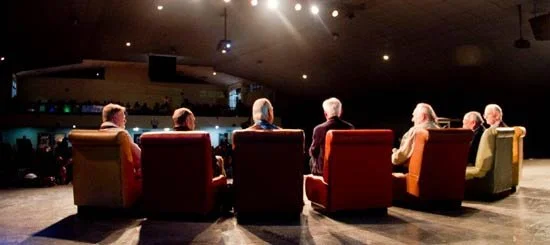Holistic Discipleship
Earlier this month in Costa Rica, Christian leaders and pastors from across Latin America met for CLADE V, the Fifth Latin American Congress of Evangelization (great photos here). The congress, put together by the Latin American Theological Fraternity (FTL), has gathered once a decade or so over the past 40 years. This time the chosen theme was “Following Jesus in God’s Kingdom of Life. Guide us, Holy Spirit!”:
The focus will be on incarnational ministry with a commitment to holistic discipleship, God’s kingdom of life in the context of so much death, a plea for God’s presence and power in Latin America, and a confession of Latin American Christians’ weakness and unfaithfulness in living Christ-like lives of love. Through the congress and the participatory processes linked to it, the FTL seeks to foster a Christian movement in Latin America that aligns with these themes and radically engages with the realities and hardships of the Latin American context with the hope of the Gospel.
I wasn’t able to be there, but I enjoyed following along as much as possible and have appreciated various reports on it since then. Amy Reynolds, a sociology professor at Wheaton College who attended the event, reflects on the social and political contexts in which Latin American evangelical theologies have taken root and what the rest of us can learn from them. She issues this challenge:
In an age of globalization, we have more chances than before to be a part of global networks, with those in different positions in the international system. How might we—here, I specifically mean people of faith within the United States—allow ourselves to think more critically about our own context and how it shapes our theology? How might we think about issues like economic globalization (which tend to benefit many of us in the middle or upper class of the United States) as deeply theological ones? These are issues of life and death, as my brothers and sisters consistently confirmed last week. As people of faith, we can not afford to ignore the context of our own theologies.
Here also is the translation of part of a presentation given by Carlos Herfst of Guatemala on mission and relationship:
Our ecclesiological “being” which consists in our participation in the body of Christ is something that occurs between us and the triune God, among us and the other members of the body of Christ, and among us and our neighbors from the world in which we live. Mission does not simply consist in the transmission of ideas, doctrines or propositional truths, but rather it consists of entering into relationships that transform us as well as those with whom we share the good news of the kingdom of God. Being a Christian is having an ecclesial identity that is dynamic and relational and that liberates us through our participation in the life of the Trinity so that we can share with others the love and hope of God with open hearts and open hands.
If those snippets intrigue you, and if you speak Spanish, you may be interested in watching videos from the gathering, available here. Many more written reflections from participants including René Padilla, Loreto Fernández, and Juan Stam are also available at El Blog de Bernabé, a blog with the wonderful tagline “Christianity, faith, and mission along with a coffee.”
